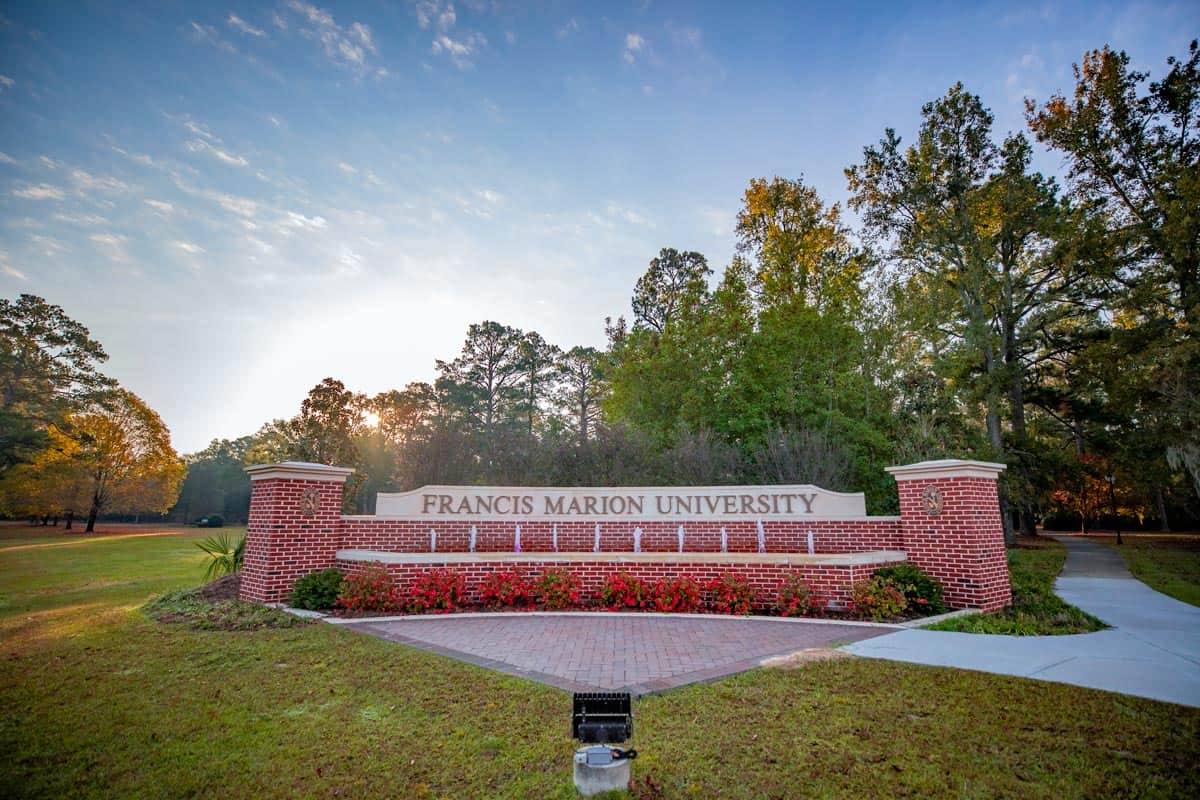August 24, 2020

CCU, FDTC, FMU, and HGTC sign Covid-19 mutual aid compact
Four public institutions of higher education in the Pee Dee and Lowcountry region of South Carolina have agreed to a unique partnership for assistance and mutual aid during the COVID-19 pandemic.
Leaders from Coastal Carolina University, Florence-Darlington Technical College, Francis Marion University, and Horry-Georgetown Technical College recently signed a mutual assistance compact, which is the first of its kind in the state.
The compact provides the four institutions with the assurance of mutual aid in planning, facilities access and support, and staffing, should the need arise.
The compact is the product of discussions between the schools this summer when all four were busy building their fall reopening plans. And in that regard, the agreement has already born some fruit. Following this summer’s consultation, all four schools are operating on similar schedules. That benefited faculty, staff, and students and their families as they made fall plans.
The agreement will certainly continue to assist in planning, and it could manifest itself in a number of ways as well. An obvious example would be enabling students enrolled at one institution to use academic facilities such as libraries, technology or testing centers for proctored test, and other tools from any compact member institution. This would be especially useful if instruction were to return to an all-online format.
The compact was created to last throughout the pandemic, but it could lead to more enduring arrangements. Bridge agreements amongst the four schools, ensuring academic continuity for students moving from one institution to another, have existed for years.
Florence-Darlington Technical College Interim President Ed Bethea praised the agreement saying, “This mutual aid agreement is great for our students and educators! We look forward to continuing years of cooperation between our partners and neighbors at the other institutions!”
“Our four-way partnership, amongst two universities and two colleges spanning 180 miles, is a phenomenal way to provide open access to our students- all for their convenience and success,” said Dr. Marilyn Murphy Fore, HGTC President.
“As leaders of higher education institutions in our region, we share the responsibility of removing barriers to learning and ensuring access to facilities and technology for all of our students,” said David A. DeCenzo, Ph.D., President of Coastal Carolina University. “Our institutions have a long-standing history of connecting well with one another. This agreement opens up imaginative new prospects for meeting our students’ needs together.”
Dr. Fred Carter, president of Francis Marion University, said the agreement is a model for how institutions across a geographic region can work cooperatively.
“The students and families in this area need access to every educational resource possible, and we ought to be working together continually to make sure that happens,” said Carter. “This came about because of a global crisis, but it shouldn’t take a pandemic to bring about this type of agreement amongst our institutions. Hopefully, this can lead to a long-lasting compact between our four schools, and provide a model for colleges and universities across the state and the country.”